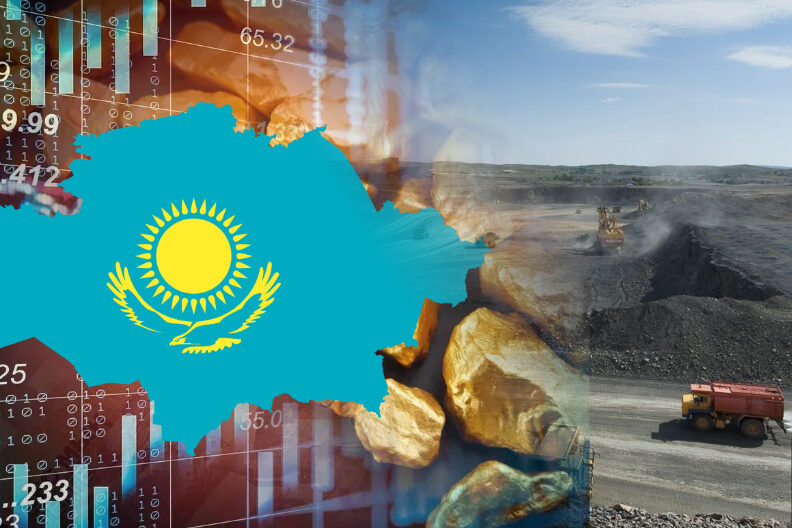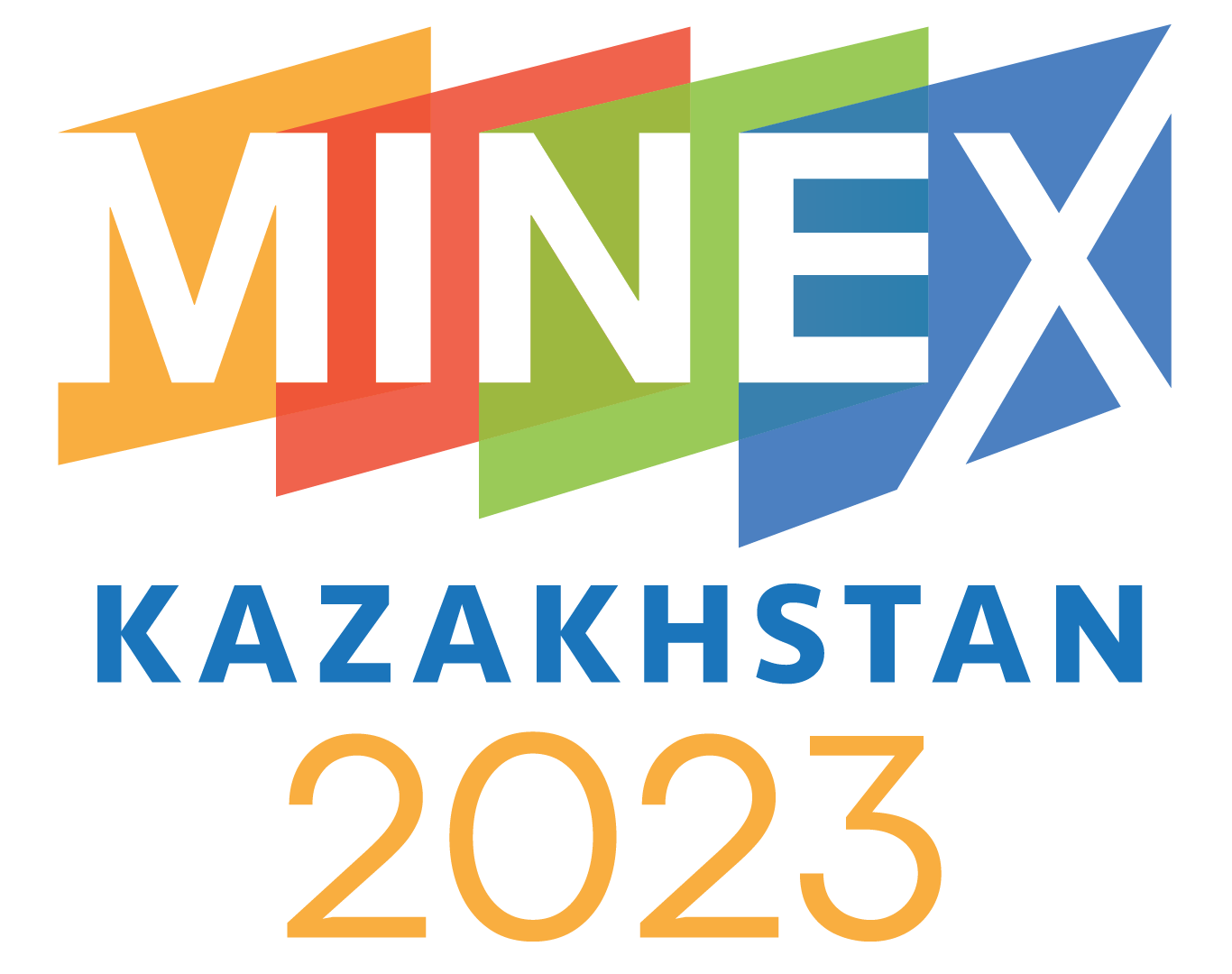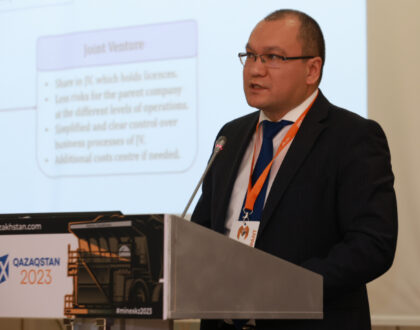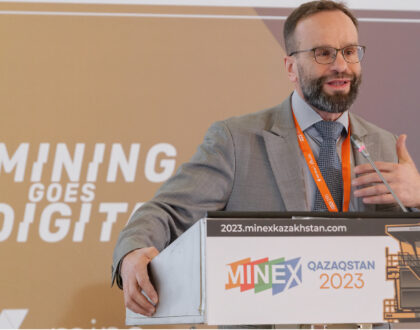Mining and Metallurgical industry contributed 26% of total industrial production in Kazakhstan in 2022

The Mining and Metallurgical Complex (MMC) of the Republic of Kazakhstan is a crucial industrial sector that plays a significant role in the economic development and social well-being of the country. In 2022, the results in this sector were quite positive. The value of metal ores extracted during January-December 2022 was 3.42 trillion tenge, compared to 3.28 trillion tenge a year earlier, and the output in metallurgy was more than 9 trillion tenge, up from 7.68 trillion tenge in the previous year.
Metal ore extraction accounted for approximately 14% of the mining sector’s total output in value terms, and metallurgy’s weight in the manufacturing industry was nearly 44%. In general, the MMC contributed to more than 26% of the total industrial production in the country, which is over a quarter of the entire industry of the republic based on the mining and processing of metals.
Non-ferrous metal ores made up 2.73 trillion tenge, and iron ore accounted for 684.3 billion tenge. Basic precious and non-ferrous metals contributed 5.82 trillion tenge to the structure of metallurgical production, while ferrous metallurgy made up 3.17 trillion tenge, and metal casting contributed 25 billion tenge.
In physical terms, ferrous metallurgy increased the production of ferroalloys by 2.6% to 2.1 million tons. Still, steel production decreased by 8% to 4.1 million tons, and pig iron declined by 10.3% to 3.2 million tons. In non-ferrous metallurgy, there was a slight increase in aluminium output by 0.2% to 1.6 million tons, but copper output fell by 1.2% to 453 thousand tons. The production of lead and zinc decreased to 108.8 thousand and 266.3 thousand tons, respectively. However, gold output increased by 13% to 129.6 tons.
In the first 11 months of 2022, metals and metal products accounted for over 14% of the country’s total exports ($11 billion) and approximately 21% of exports to the CIS countries ($2.8 billion). This is almost $1 billion more than the export of food, chemical, light industry, and wood processing products combined. The mining and metallurgical complex of the Republic of Kazakhstan’s most extensive enterprises in the field of mining and processing of non-ferrous metals are Kazakhmys Corporation LLP, Kazzinc LLP, Aluminum of Kazakhstan JSC, Kazakhstan Electrolysis Plant JSC, and Ust-Kamenogorsk Titanium and Magnesium Plant JSC. In the field of iron ore mining and ferrous metallurgy, the key enterprises are ArcelorMittal Temirtau JSC, Kazchrome TNC, Zhairemsky GOK, Sokolov-Sarbay Mining and Processing Production Association (SSGPO), Temirtau Electrometallurgical Plant JSC, and others.
The mining and metallurgical complex’s share in the republic’s GDP is almost 9%, according to the head of the Ministry of Industry and Infrastructure Development, Marat Karabaev. In 2022, the industry saw the implementation of 19 new investment projects worth 232 billion tenge, leading to the creation of 3.5 thousand permanent jobs.
Kazakhstan’s mining and metallurgical complex (MMC) plays a crucial role in the country’s economy, providing direct employment to more than 27% of the total workforce in the industrial sector of the Republic of Kazakhstan. In addition to the direct economic impact, the sector has a significant social impact, offering high salaries and supporting the development of single-industry towns and SMEs.
Looking ahead to 2023 and beyond, the sector is set to experience further expansion, with plans to introduce new capacities and enterprises in the sector. In the Saran industrial zone in the Karaganda region, three metallurgical enterprises are planned to be built, creating more than 2,000 new jobs and bringing in an investment of approximately $478 million. Similarly, QazSpetsSteel plans to build a steel plant in the Aktobe region for the production of rails, railway wheels, building, and structural fittings, bringing in an investment of around $587 million and a capacity of 800,000 tons of products per year.
The existing businesses in the sector are also expanding, such as the Sokolovsko-Sarbay Mining and Processing Production Association (SSGPO), which has received an international certificate for producing a trial batch of BF pellets with high iron content. The enterprise has started work on modernizing the technological scheme for concentrate production and aims to enter new sales markets, including Europe, which will neutralize the negative impact of sanctions on the production sector.
The MMC sector’s significant share in the total volume of investments in fixed capital in the industrial sector is around 18%. This demonstrates the sector’s importance in the country’s economy and its potential for future growth and development.
The MMC sector’s employees enjoy a high level of salaries, with MMC employees receiving 60%–65% more than the average salary in the country. For instance, the ERG group increased the salaries of its personnel by 15% from January 1, 2023, and allocated an additional 60 billion tenge to increase the wage fund.
Moreover, MMC enterprises support the development of single-industry towns and regions of their presence in the country, contributing to the improvement of the quality of life in socially significant areas. For instance, KAZ Minerals is developing Ekibastuz, Kazzinc is supporting Altai and Ridder, and ERG is contributing to the provision of schools in Aktobe, Kostanay, and Pavlodar regions with digital technologies.
Support for SMEs is another essential point for mining companies. The allocation of funds for lending to entrepreneurs and purchases from local manufacturers plays a critical role in the development of the latter. The ERG group purchased goods and services for 1.63 trillion tenge, of which the volume of purchases from Kazakhstani companies amounted to 1.24 trillion tenge in 2022.
In conclusion, The Mining and Metallurgical Complex plays a crucial role in Kazakhstan’s economy, creating jobs, bringing in significant investments, and providing high salaries to its employees. The sector’s expansion plans and support for SMEs and the development of single-industry towns demonstrate its commitment to contributing to the overall social and economic development of the country. As a result, it is poised to continue being an essential and dynamic contributor to the country’s growth in 2023 and beyond.



